With bold legal action, brave clients and your incredible support, together we’ve notched up tremendous wins for nature in 2022.
Groundbreaking cases take thousands of hours of legal and scientific work to win. These victories are only possible with the support of people like you who help enforce the law and defend our wildlife, culture, communities and climate.
The year ahead will be monumental as we take on coal and gas projects that threaten our climate, challenge destructive projects which put our biodiversity and precious freshwater at risk, and work alongside First Nations peoples to protect Country and culture.
The EDO community is made up of thousands of people who have joined us to fight for environmental justice.
Thank you for powering us in this journey, this fight.
Tiwi Islanders claimed victory over Santos for a second time
Tiwi Islanders rejoiced after the Full Federal Court upheld a landmark ruling that invalidated Santos’ approvals to drill for gas in Tiwi Sea Country.
The Federal Court had earlier found Santos failed to consider Tiwi People as part of its consultation about the drilling project, as required by law. Santos’ appeal, heard by a full bench of the Federal Court in November, came on the heels of Tiwi Senior Lawman Dennis Tipakalippa’s historic September victory.
Mr Tipakalippa argued that NOPSEMA, the federal offshore gas regulator, should not have approved Santos’ plans to drill the Barossa gas field because the company had not properly consulted the Munupi Clan.
In an historic decision, the Court, presided over by Justices Kenny, Mortimer and Lee, dismissed Santos’ arguments that Tiwi Islanders are not required to be consulted about potential impacts to their sea country.
The court’s decision to reject Santos’ appeal will have significant implications for the Barossa gas project, with drilling stalled since early October and Santos now required to go back to the drawing board on their plans.
Our clients made history when they won their challenge to Clive Palmer’s massive coal mine
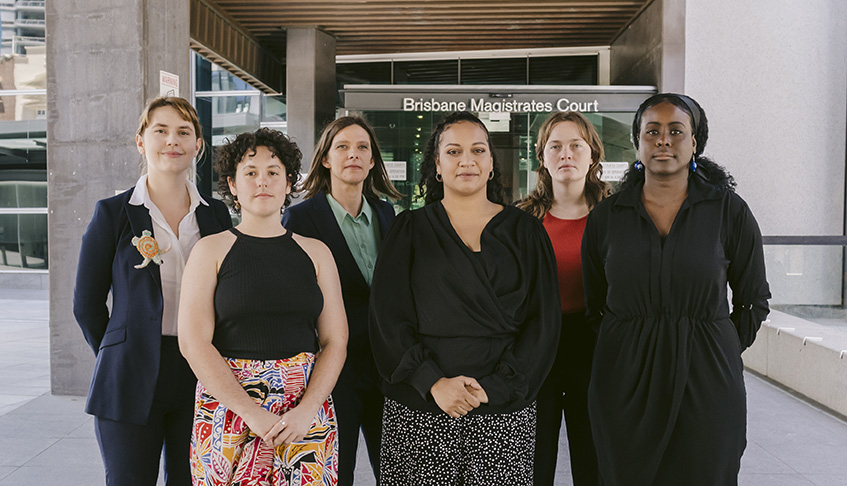
In a huge win for climate and human rights, on 25 November 2022, a Queensland court found that Clive Palmer’s proposed Galilee Coal Project should be rejected.
Representing our clients, Youth Verdict and The Bimblebox Alliance, EDO argued coal from the Galilee Coal Project would impact the human rights of First Nations Peoples by contributing to dangerous climate change. We also argued the mine would destroy the Bimblebox Nature Refuge which sits on top of the proposed mine site on Wangan and Jagalingou Country. This case was also the first time an Australian court heard evidence against a coal mine on-Country and according to First Nations protocols.
This is a hugely significant legal victory for First Nations peoples seeking to protect their cultures and communities from the impacts of climate change.
“We are overjoyed. The voices of First Nations Queenslanders have been heard. A court has recognised the human and cultural rights of First Nations peoples are impacted by climate change and has recommended that this mine not be approved, ” said Youth Verdict First Nations Lead and Co-director Murrawah Johnson.
“As a Wirdi woman, I am proud that this case was able to raise the bar for the respect given to First Nations knowledge and customs in the western courtroom. We are excited that we were able to use the Human Rights Act to advocate for changes to Land Court process based on cultural rights grounds.
“First Nations peoples must have decision-making power over our Country, our lives and our futures. By continuing to fight for First Nations cultural rights, we’re fighting for a safe and healthy climate for us all.”
We won the epic legal battle over KEPCO’s Bylong Valley coal mine
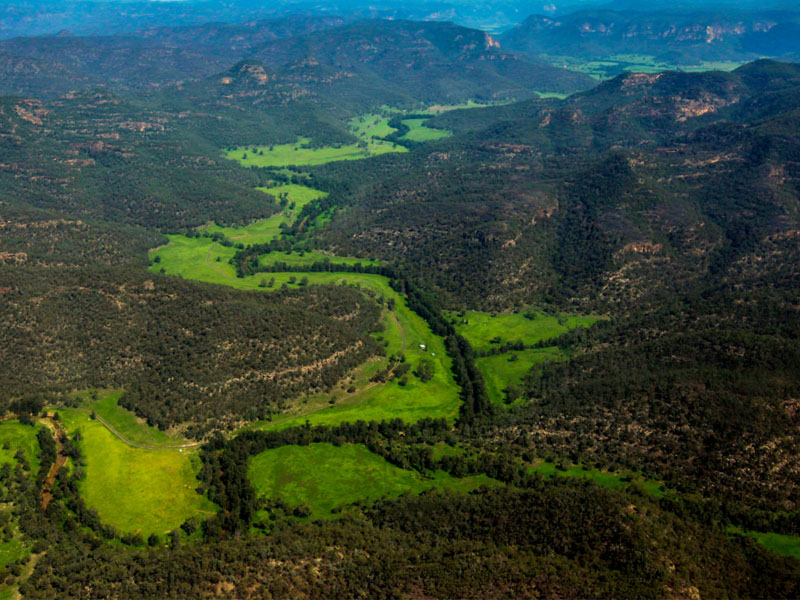
The epic legal battle to protect the pristine Bylong Valley from a massive new coal mine was won in February, after the High Court declined to hear an appeal by the proponent.
It means South Korean company KEPCO has exhausted all available legal avenues to challenge a 2019 decision by the Independent Planning Commission (IPC) to refuse the Bylong Coal Project.
The case, dubbed a ‘David and Goliath battle’, saw EDO client the Bylong Valley Protection Alliance (BVPA) take successful defensive legal actions to preserve the scenic valley, before the IPC, the NSW Land and Environment Court, the Court of Appeal, and the High Court of Australia.
“The battle to protect the beautiful Bylong Valley from this coal mine is over. The IPC’s decision to refuse this mine was sound. It was based on the evidence and the science, including evidence about the ‘problematical’ greenhouse gas emissions. The decision was tested to its limits and in every appeal the IPC’s decision has been upheld, defended by the EDO and BVPA,” said EDO Managing Lawyer Rana Koroglu.
“It means the IPC can be assured that an evidence-based decision to reject these kinds of destructive fossil fuel projects in the future is legally supported.
“This project would have generated over 200 million tonnes of greenhouse gas emissions. It would have been an affront to global efforts to limit climate change, particularly when South Korea itself has recently made strong commitments to reduce its greenhouse gas emissions.”
We saved native forest from land clearing at Ansons Bay
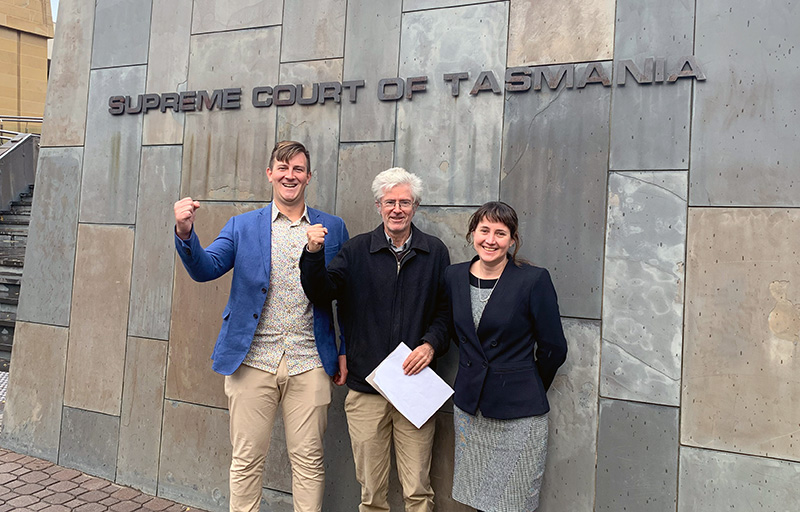
A large parcel of native forest will no longer be cleared for cattle grazing after a successful legal challenge by the Tasmanian Conservation Trust (TCT), represented by EDO.
In May, the Tasmanian Supreme Court handed down its decision in regard to the TCT’s challenge to the validity of a Forest Practices Plan (FPP) for clearing of 1804 hectares of native forest on private land near Anson Bay, in the state’s northeast. The court found that the FPP is not valid.
“This is a fantastic outcome that has saved 1800 hectares of native forest including habitat for numerous threatened species including the Tasmanian devil, Tiger quoll and New Holland Mouse and 491 hectares of critically endangered Eucalyptus ovata forest,” said Peter McGlone, CEO of the Tasmanian Conservation Trust.
“Destruction of native habitat is a leading driver of extinction and this would have been one of the largest tracts of private land cleared in Tasmania for agriculture for many years,” said EDO Managing Lawyer Claire Bookless.
“Cases like this are brought in the public interest, to defend critical habitat and ensure decision makers follow the rules when deciding on issues of extreme importance such destruction of our natural environment.”
The 22-year battle against the Yancoal mine expansion was finally won
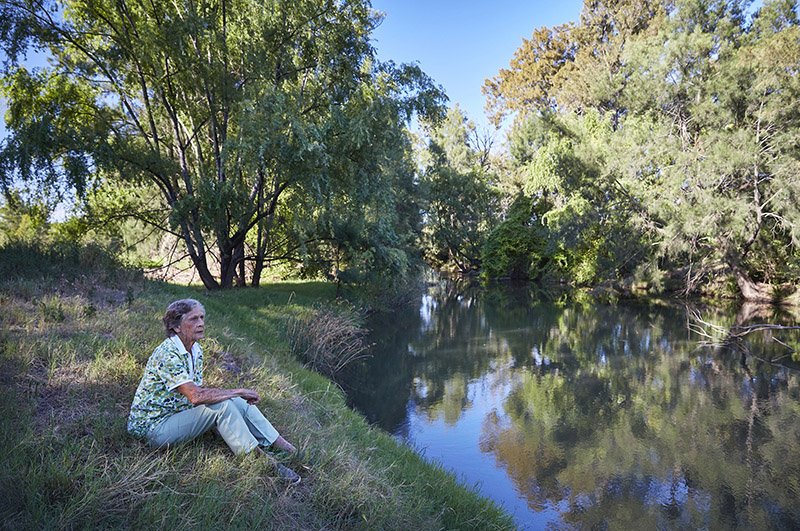
The Camberwell and Hunter community celebrated following the news Yancoal’s planned Ashton South East Open Cut coal mine extension has finally bitten the dust. The project’s planning approval granted in 2015 expired in April, bringing to an end the decades-long fight against the proposal.
Crucial to the community’s victory was award-winning environmental activist farmer Wendy Bowman, who refused to sell her house to the company, even updating her will to ensure her home could not be sold to Yancoal in the event of her death.
The company was left with few avenues after the 2015 state Court of Appeal upheld an earlier decision of the Land & Environment Court that the mine could proceed only on condition that Ms Bowman sold Yancoal her land. The Camberwell community was represented by the Environmental Defenders Office in a number of court battles against the mine over more than a decade, including the pivotal 2015 Court of Appeal case.
“I opposed the mine expansion right from the beginning because the village and the water were so important. I was thinking of everyone downstream who completely relies on that water. It was just so stupid – the whole project,” said Ms Bowman.
“It is a tremendous relief for everybody. I’m happy because the fact is nobody will be affected by this project now and everything can go on normally. So many people have worked to help stop it. It’s marvellous to think we’ve stuck to it for so long and got there in the end.”
NSW became the first State to regulate greenhouse gases as pollutants after our court case win on behalf of bushfire survivors
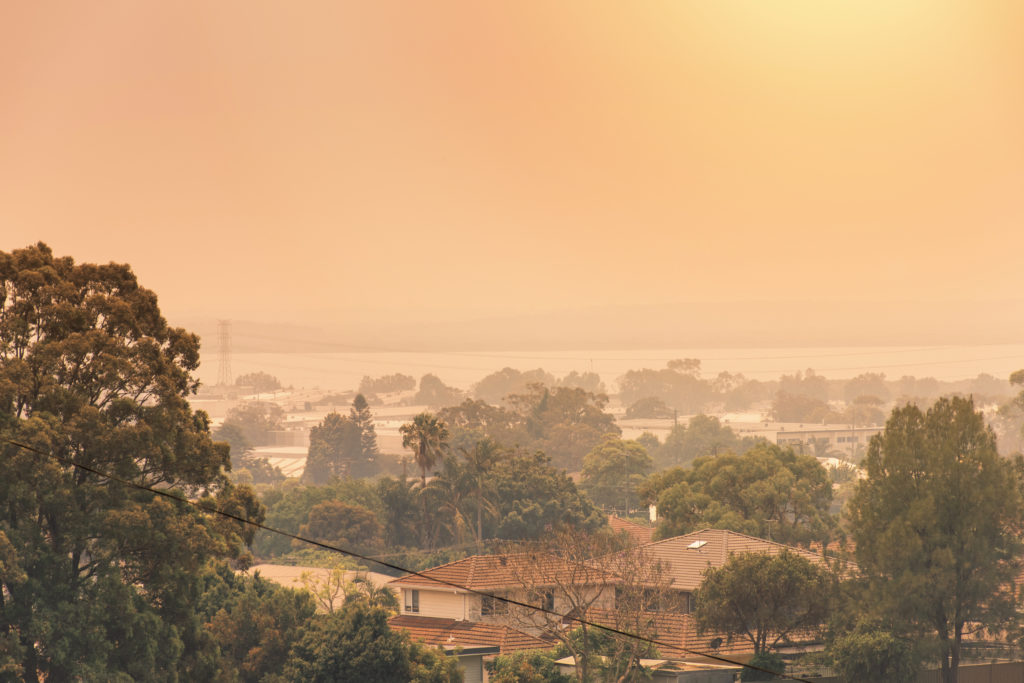
One year after the landmark win by Bushfire Survivors for Climate Action in the NSW Land and Environment Court, NSW’s environmental regulator released a draft of their first climate policy and action plan in September.
The Court found in August 2021 that the NSW Environment Protection Agency (EPA) has a legal duty to take serious action on greenhouse gas emissions and climate change – the first time that an Australian court has ordered a government to take meaningful action on climate change.
EDO’s case on behalf of our client, Bushfire Survivors for Climate Action (BSCA), argued that the EPA has a duty to develop policies, objectives and guidelines to regulate greenhouse gas emissions and protect communities from the impacts of climate change.
“After the worst bushfire season on record in 2019/20, BSCA decided to use the law to ensure the authority tasked with protecting people and the environment does so effectively,” said BSCA spokesperson Fiona Lee.
“Bushfire survivors like me have already endured the devastating effect of climate change on our lives, homes, jobs and security and we know that extreme weather events like these will only increase in intensity and frequency as global temperatures increase. We need drastic emissions reductions this decade to keep our communities safe from further climate dangers.”
New federal environment law reforms represent potentially the most significant enhancement in federal environmental protections in more than a decade
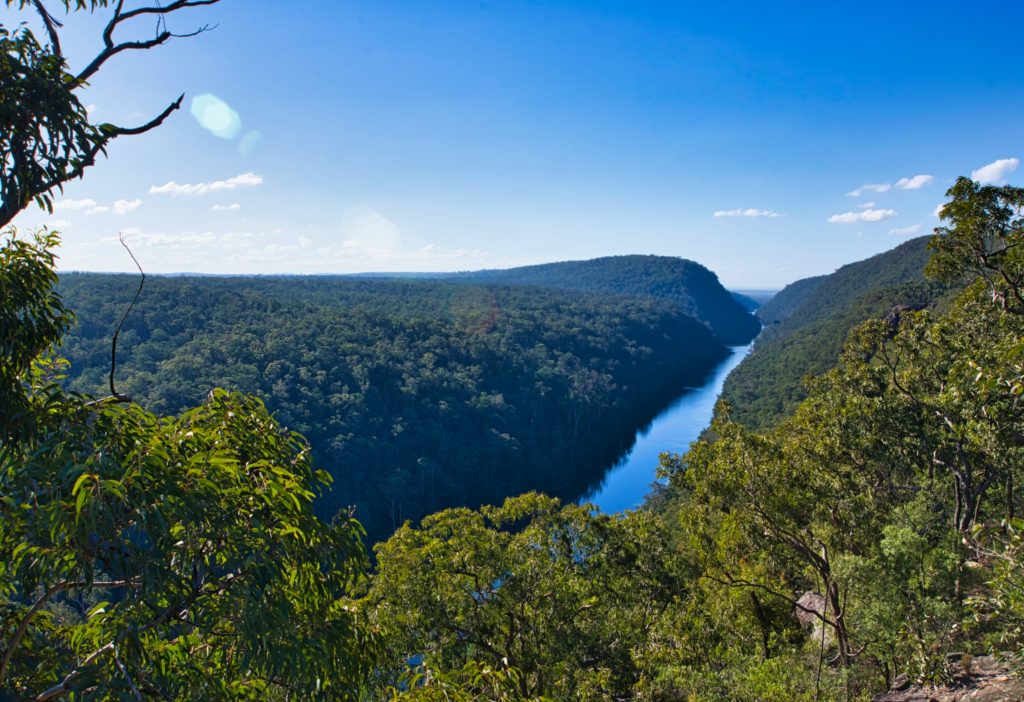
Environment Minister Tanya Plibersek has released the Federal Government’s response to Professor Graeme Samuel’s once-in-a-decade review of Australia’s national environmental laws. The response, which addresses Professor Samuel’s recommendations to modernise the Environment Protection and Biodiversity Conservation Act 1999 (Cth) (EPBC Act), is a good starting point, containing some long overdue reforms and positive steps forward. But there are still some gaps, and some concerning proposals which could undermine outcomes for our at-risk ecosystems and endangered animals. A lot of critical detail will need to be negotiated to ensure new laws are up to the challenge.
Read our legal update which analyses the top 10 elements of the Minister’s announcement in the context of the climate and extinction crises, the need for rapid and effective law reform, and the importance of ensuring that our environmental laws are robust enough to protect our natural environment for years to come.





